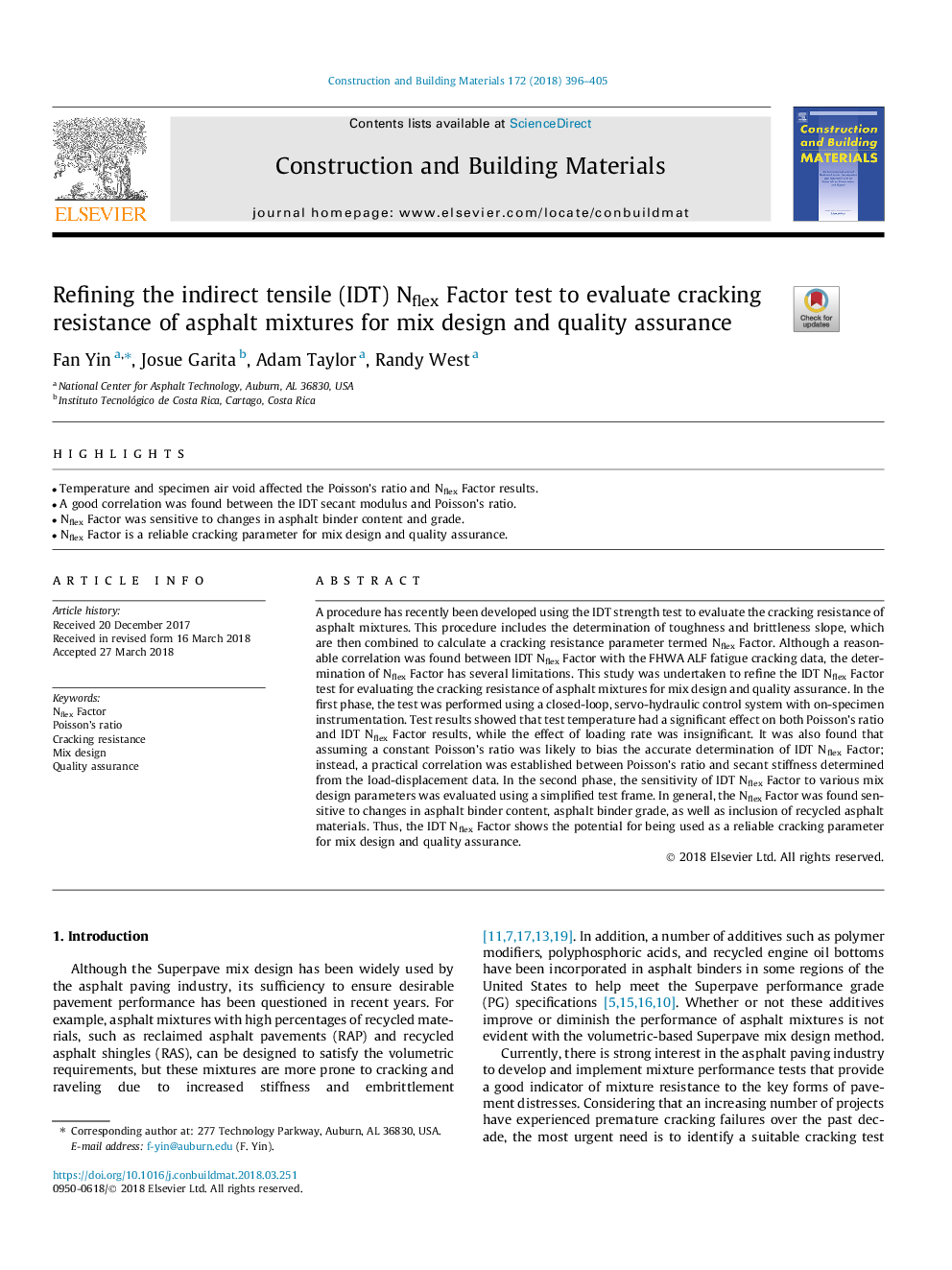| Article ID | Journal | Published Year | Pages | File Type |
|---|---|---|---|---|
| 6713864 | Construction and Building Materials | 2018 | 10 Pages |
Abstract
A procedure has recently been developed using the IDT strength test to evaluate the cracking resistance of asphalt mixtures. This procedure includes the determination of toughness and brittleness slope, which are then combined to calculate a cracking resistance parameter termed Nflex Factor. Although a reasonable correlation was found between IDT Nflex Factor with the FHWA ALF fatigue cracking data, the determination of Nflex Factor has several limitations. This study was undertaken to refine the IDT Nflex Factor test for evaluating the cracking resistance of asphalt mixtures for mix design and quality assurance. In the first phase, the test was performed using a closed-loop, servo-hydraulic control system with on-specimen instrumentation. Test results showed that test temperature had a significant effect on both Poisson's ratio and IDT Nflex Factor results, while the effect of loading rate was insignificant. It was also found that assuming a constant Poisson's ratio was likely to bias the accurate determination of IDT Nflex Factor; instead, a practical correlation was established between Poisson's ratio and secant stiffness determined from the load-displacement data. In the second phase, the sensitivity of IDT Nflex Factor to various mix design parameters was evaluated using a simplified test frame. In general, the Nflex Factor was found sensitive to changes in asphalt binder content, asphalt binder grade, as well as inclusion of recycled asphalt materials. Thus, the IDT Nflex Factor shows the potential for being used as a reliable cracking parameter for mix design and quality assurance.
Related Topics
Physical Sciences and Engineering
Engineering
Civil and Structural Engineering
Authors
Fan Yin, Josue Garita, Adam Taylor, Randy West,
